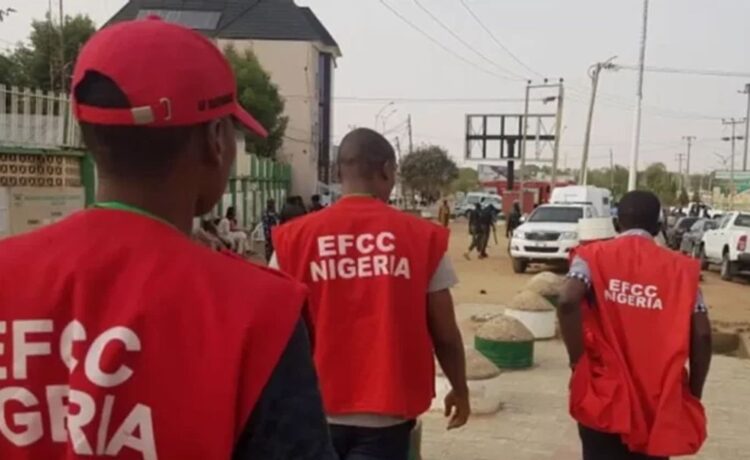In a decisive move that has captured the nation’s attention, the Economic and Financial Crimes Commission (EFCC) has detained 11 individuals in Kano, suspected of engaging in currency racketeering. This action comes at a time when Nigeria faces a crucial battle against financial crimes, revealing the intricate web of corruption that plagues the country’s financial system. But this is just the tip of the iceberg in a series of events that have sparked public concern and debate across Nigeria, from the halls of power to the streets of its bustling cities.
The EFCC’s recent operation in Kano is a stark reminder of the ongoing efforts to cleanse Nigeria of corruption and financial malpractices. According to reports, the suspects were apprehended for their alleged involvement in the sale of new naira notes, a practice that undermines the country’s economy and the integrity of its currency. Among those detained are six bankers, highlighting the disturbing complicity within the financial sector in these illicit activities. This crackdown is part of a broader strategy by the EFCC to address vulnerabilities in the system and enforce stricter compliance with anti-corruption measures.
The Ripple Effects of Financial Crimes
Financial crimes do not exist in a vacuum. They erode trust in the financial system, perpetuate inequality, and stifle economic growth. The EFCC’s actions in Kano shine a light on the pervasive nature of these crimes and their impact on everyday Nigerians. The sale of new naira notes for commercial purposes, as alleged in this case, not only disrupts the economy but also disadvantages the average citizen, who struggles to access legal tender for daily transactions. This operation underscores the necessity of vigilance and reform within the banking sector to safeguard the public’s interest.
The currency racketeering arrests in Kano are part of a larger tapestry of events that have drawn public attention and concern in Nigeria. From the social media outcry over a woman’s attire at a bank to the controversy surrounding the burial arrangements of a prominent figure, and the alarming advocacy for violence against political figures, Nigeria finds itself at a crossroads. These incidents, while diverse, all point to a nation grappling with issues of morality, legality, and social cohesion. They call for a reflective examination of the values that bind the Nigerian society and the paths towards resolving these underlying tensions.
In confronting these challenges, it is crucial for institutions like the EFCC to not only pursue those who break the law but also to build systems that are resilient to corruption and injustice. The recent actions in Kano represent a step in the right direction, but they also remind us of the long road ahead in achieving a just and equitable society. As Nigeria continues to navigate these tumultuous waters, the resolve of its institutions and the vigilance of its citizens will be paramount in shaping the future of the nation.

